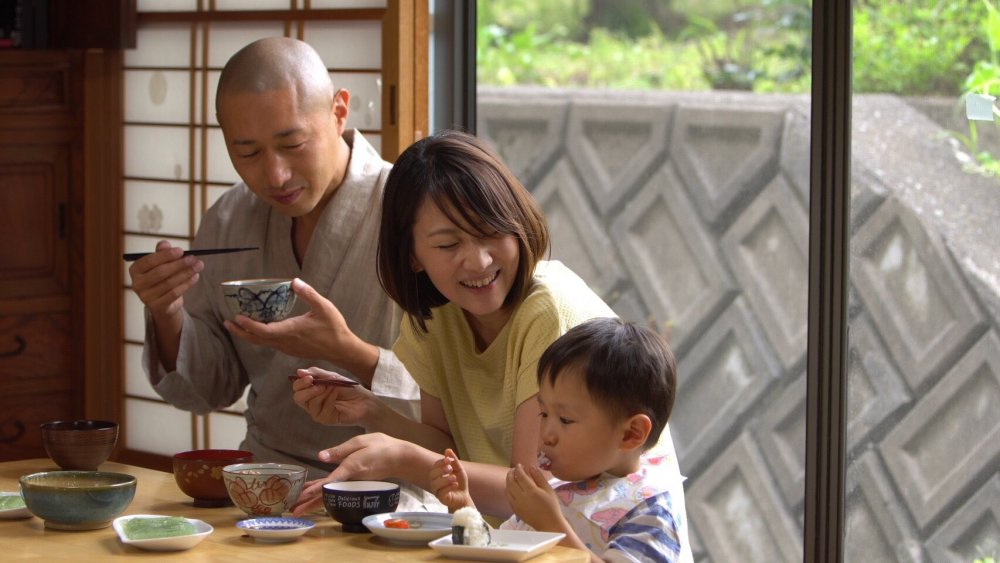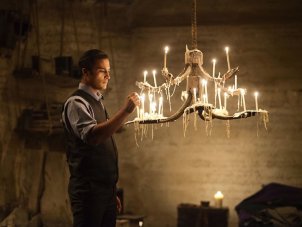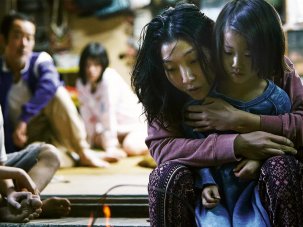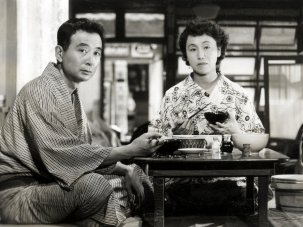Watching Tomita Katsuya’s Tenzo is a disorienting experience, but not because of any particular narrative surrealism or visual oddities. The reason it is a destabilising watch isn’t because of the kind of dream-logic employed by a David Lynch, or the surreal imagery of a Luis Buñuel, nor even the bizarre narrative of a Alejandro Jodorowsky.
Japan 2019
59mins
Director Tomita Katsuya
Cast
Chiken Kawaguchi
Shinko Kondo
Ryugyo Kurashima
Shuntou Aoyama
[1.85 : 1]
In Japanese
The basic content of the film is very simple: Chiken, a Buddhist monk, attempts to live his life in a useful way. He mans a telephone support service for the suicidal, among other activities. His old friend Ryûgyô, also a monk, lives in Fukushima, and works on construction sites as the city attempts the long job of rebuilding after the 2011 tsunami and subsequent nuclear power plant disaster. Everything hangs together; it all makes perfect sense, and Chiken and Ryûgyô’s down-to-earth takes on how we think about thinking are less abstract philosophy than they are applied psychology. The reconstruction of Fukushima provides a bittersweet counterpoint, highlighting the fragility of human effort in the face of unforeseen shocks to shared infrastructures. The political issue of the potential toxicity of modern environments is made personal via an emotive narrative about childhood allergies.
The reason Tenzo is disorienting is not this content: it’s because of what we could describe as format-based surrealism. The film mixes traditional documentary (including fly-on-the-wall and talking heads sections) with fiction and something in between, whereby real people perform scripted narratives about their own lives: a mode made more familiar to large audiences by structured-reality TV shows like Made in Chelsea.
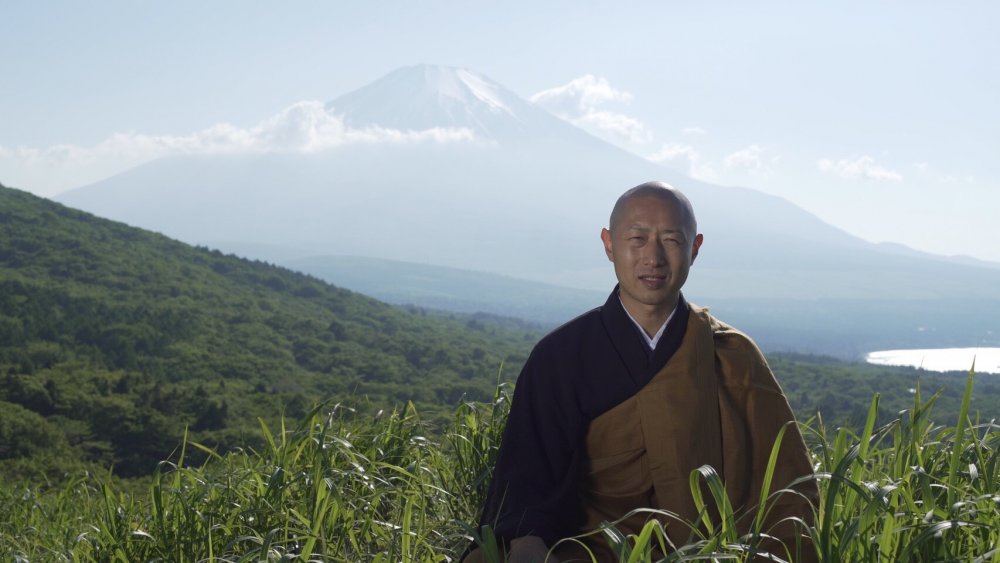
Chiken Kawaguchi
This switching between documentary and fictional or semi-fictional modes would be nothing so very new if the tone was parodic, homage-like or self-conscious: it has been a favoured strategy of satirical comedy shows for a long time. What feels fresh about Tenzo is that these switches of mode are performed as if there is no apparent consciousness on the part of the director that anything has changed, with few clues offered to the audience to help us orient ourselves. At the same time, there is never anything difficult about the sensitive, thoughtful content.
This is radical filmmaking, helping to destabilise our sense of documentary and fiction as separate categories and making a nonsense of the film industry’s tendency to divide the two when it comes to funding and exhibition. It sits neatly alongside other cinematic nonfiction such as Fraud (2016), Dean Fleischer-Camp’s excellent 52-minute conceptual film that created a riveting fictional narrative from the entirely real YouTube videos of one family – but where that film felt more purposefully mischievous, there is a hint of so-called outsider art about Tomita’s unselfconscious work. He’s certainly not your typical film-school voice. His socially conscious films are made in parallel with his day job as a truck driver; they mostly star his friends and cost very little.
As soon as you find out more about the genesis of this new film, the reason for its form becomes clearer: Tenzo represents an exemplary case of taking pragmatic realities that would hem in another filmmaker, and leaning so far into them they collapse. The film, which clocks in at 59 minutes long, was originally commissioned as a ten-minute promotional short film for a monastery, who don’t appear to have known quite what they were getting themselves into.
-
The Digital Edition and Archive quick link
Log in here to your digital edition and archive subscription, take a look at the packages on offer and buy a subscription.




